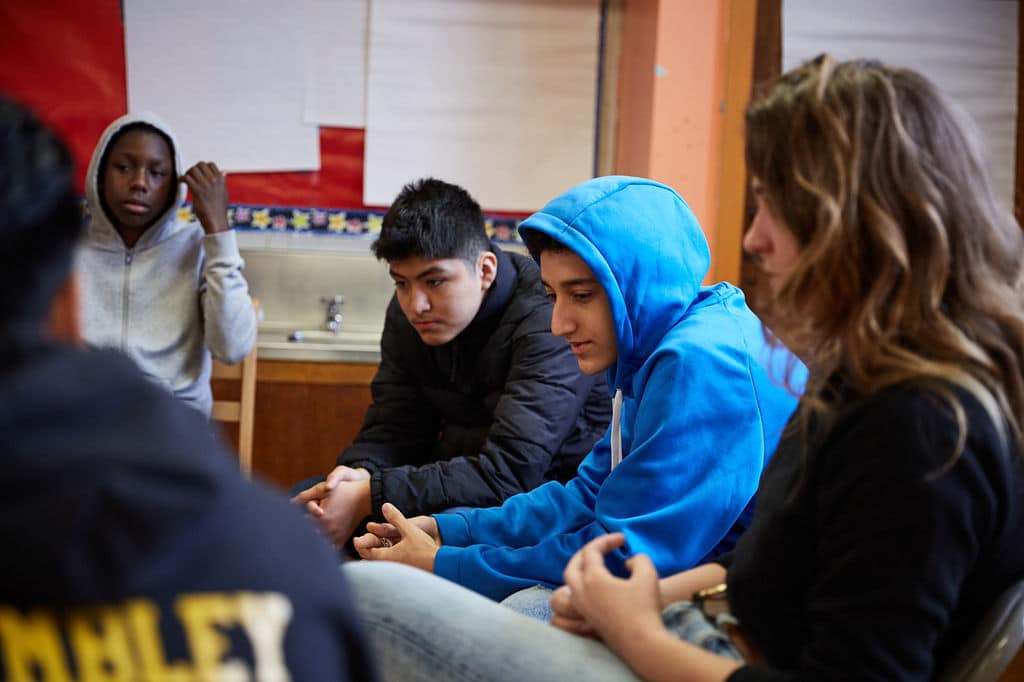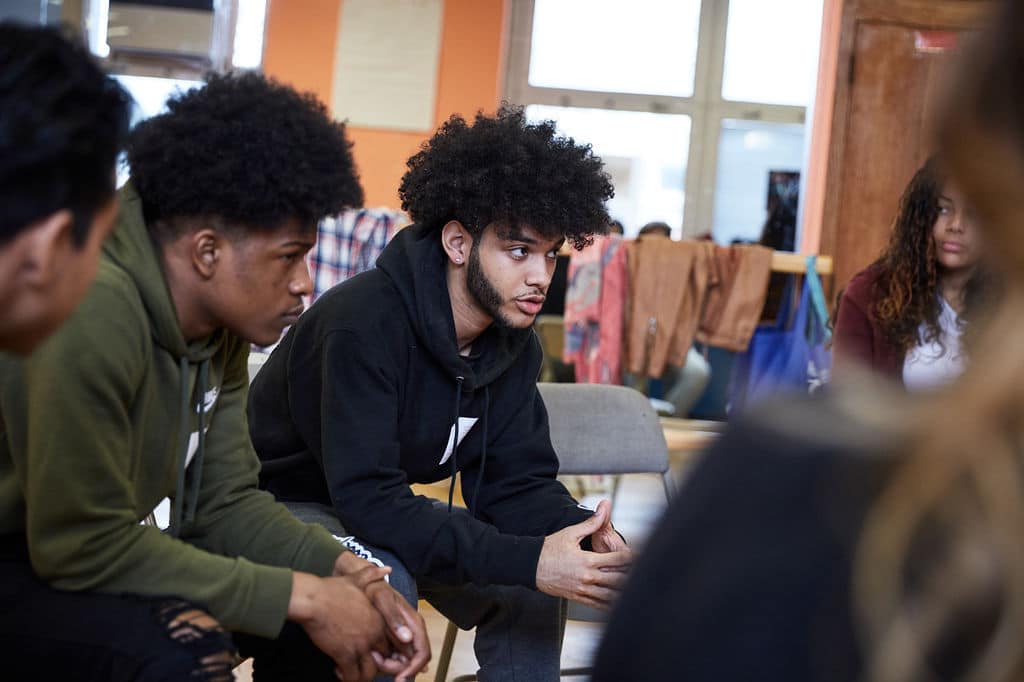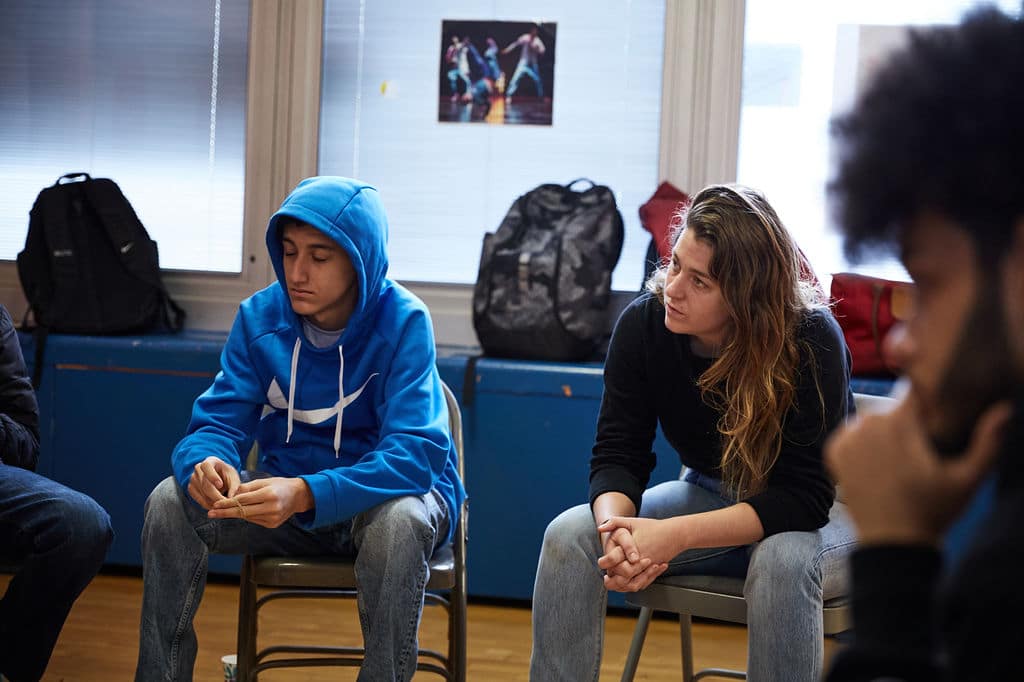Restorative Practices
Supporting cooperation, experience and growth in New York City schools and communities
Restorative practices in school settings are effective tools for increasing the social engagement of students who had otherwise been disengaged from the school community.
The goal of restorative practices is to help people understand how their actions impact others, creating ways to repair the harm caused by those actions. Restorative practices can help people deal with complicated situations without resorting to punishment or other negative consequences.
What are Restorative Practices?
Restorative practices provide structures that can strengthen connections across a wide range of experiences, including the celebration of life cycle events, the integration of new or returning community members, the resolution of conflicts, and the reparation of harm. These practices, which are drawn from multi-generational and multi-cultural sources, can be used in many different settings, including schools, workplaces and families.
Why are Restorative Practices effective in schools?
Restorative practices allow everyone involved to have their voices heard, giving voice and agency to all school community members.
Restorative is an emerging social science that studies how to strengthen relationships between individuals as well as social connections within a community.
How to Implement Restorative Practices In Your School
Staffed by over 100 mental health professionals and youth development specialists dedicated to an anti-racist, anti-oppressive practice, Counseling In Schools can help you understand how restorative practices can work positively in your school.
Experience. Understand. Grow.
Curious about how restorative practices can make a difference in your school, community or family? Let’s have a conversation today about what’s possible.


